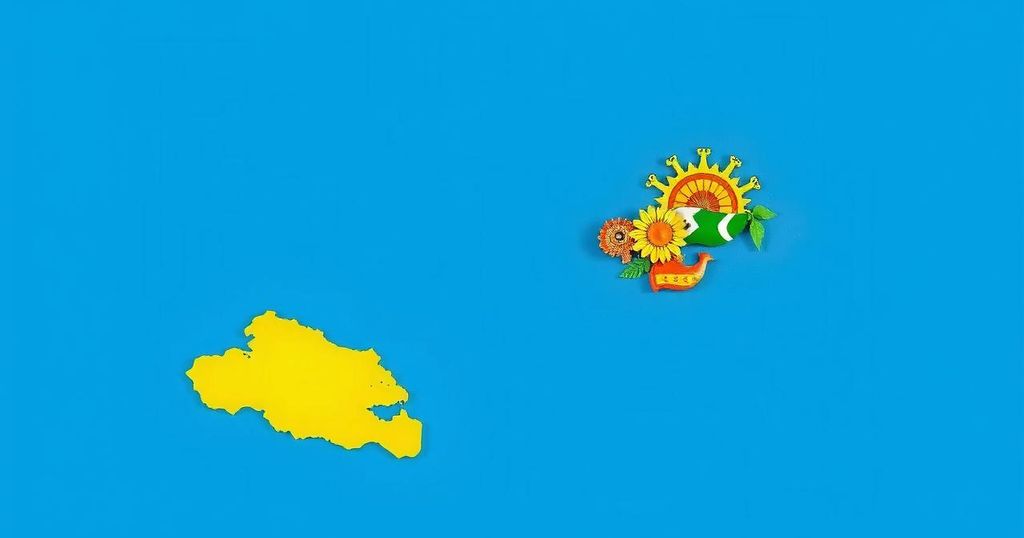Mauritius Parliamentary Elections Amid Economic Crisis and Scandal

Mauritius is holding parliamentary elections with about one million voters deciding on 62 parliamentary seats amidst a cost of living crisis and a wire-tapping scandal. Prime Minister Pravind Kumar Jugnauth seeks re-election following the UK’s cession of the Chagos Islands. Both ruling and opposition parties promise economic reforms, while concerns about electoral integrity have emerged, prompting additional security measures.
Mauritius is currently engaged in parliamentary elections, with around one million registered voters participating to elect 62 representatives. The elections are taking place amid a considerable cost of living crisis, which remains a primary concern for the electorate. The polls opened at 7 a.m. and are scheduled to close at 6 p.m., with results to be announced on the following day. These elections mark the 12th since the country’s independence from British rule in 1968 and are overshadowed by a recent wire-tapping scandal involving high-profile individuals. Prime Minister Pravind Kumar Jugnauth, leading the Militant Socialist Movement party, is contesting these elections after the United Kingdom agreed to cede sovereignty of the Chagos Islands to Mauritius, a significant moment in the country’s history. Both the ruling party and opposition factions have pledged to tackle the prevailing economic challenges, aiming to address voter concerns comprehensively. However, the political landscape has been troubled by allegations of electoral manipulation, leading to police deployments at polling stations to maintain order amidst rising tensions. The electoral response has sparked discussions about the economic conditions in Mauritius, a nation that has positioned itself as a crucial link between Africa and Asia. Despite projections of 6.5 percent economic growth for the year, many citizens feel left behind. The ruling alliance has made promises to enhance minimum wages, pensions, and reduce taxes on essential goods, while the opposition has suggested initiatives such as free public transport and lower fuel prices. Political analysts note that parties are attempting to capitalize on economic narratives to gain voter support, while international observers from the African Union monitor the voting process.
Mauritius, known for its political stability and vibrant democratic practices, is once again at the forefront of electoral activity as it approaches parliamentary elections. With a population of 1.3 million and a significant portion registered to vote, the nation’s political environment is currently shaped by economic challenges linked to a rising cost of living. Often viewed as an economic hub due to its offshore financial sector, tourism, and textile industries, the recent wire-tapping scandal has cast a shadow over the electoral process, raising concerns about political integrity and voter confidence. The Chagos Islands dispute with the UK adds another layer of historical context to the elections, with potential implications for Mauritius’s national identity and economic stability.
In conclusion, the parliamentary elections in Mauritius are deeply influenced by economic concerns and recent political controversies. With the cost of living crisis at the forefront of voter sentiments, the outcome will likely shape the future economic policies and political landscape of the country. Both ruling and opposition parties recognize the need to address these pressing issues to gain voter support. As international observers remain vigilant, the electoral process serves as a vital reflection of the democratic values upheld within this Indian Ocean island nation.
Original Source: www.aljazeera.com







